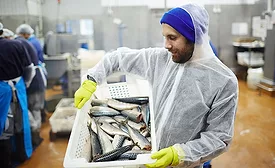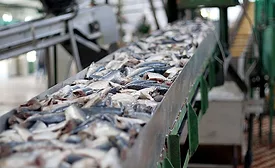Home » Keywords: » Georgia
Items Tagged with 'Georgia'
ARTICLES
Recall Regulatory Partners' Efforts to Improve Integration Expands Nationwide
The 2022 Recall Integration Partnership Project expanded upon critical state and federal partnerships to improve response capabilities during recall events
April 7, 2023
How Food Manufacturers Have Responded to the COVID-19 Pandemic—Part 2
Six of the seven facilities assessed reported a "noticeable" or "significant" improvement in food safety culture behaviors of workers
February 6, 2023
How Food Manufacturers Have Responded to the COVID-19 Pandemic—Part 1
Seafood manufacturers have demonstrated adaptability to protect workers and avoid closing, despite supply shortages and changing public health guidance
December 9, 2022
Never miss the latest news and trends driving the food safety industry
Newsletters | Website | eMagazine
JOIN TODAY!Copyright ©2026. All Rights Reserved BNP Media.
Design, CMS, Hosting & Web Development :: ePublishing





